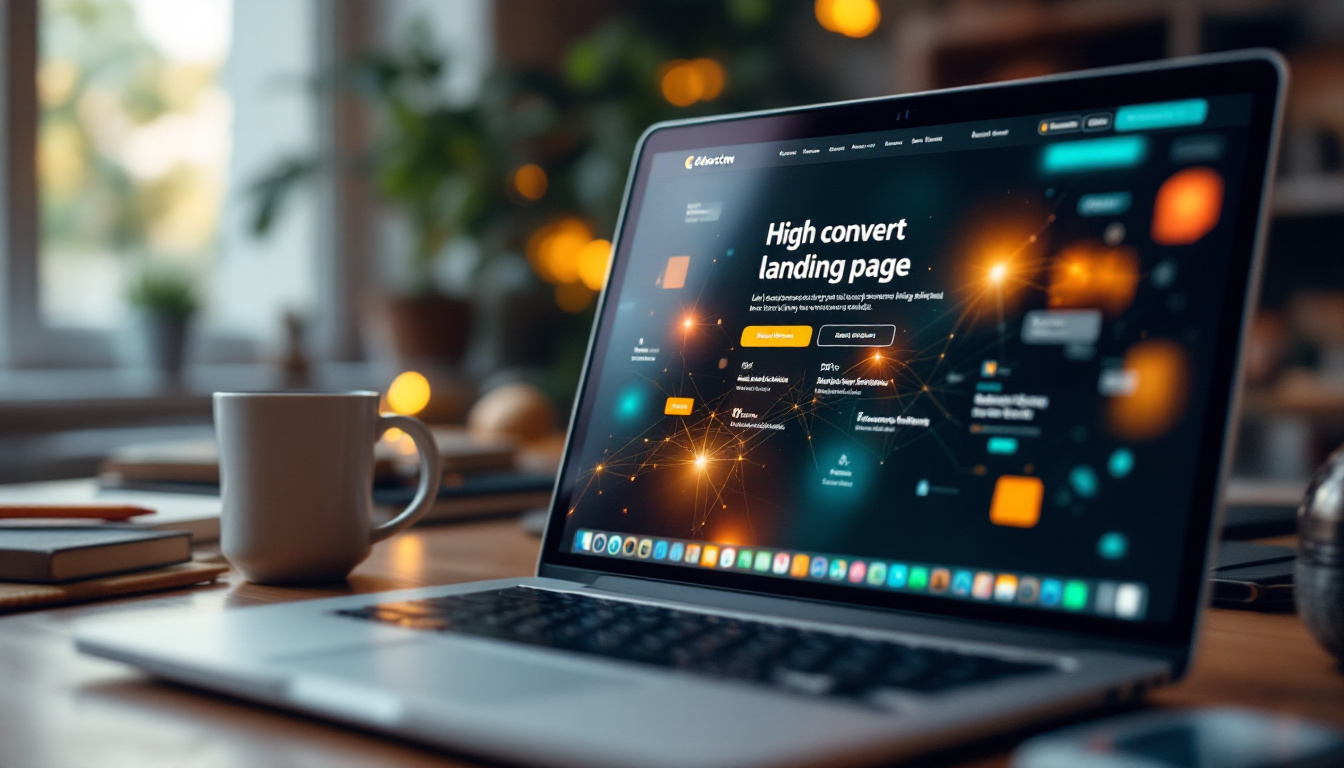The Importance of Landing Page Optimization for Boston, MA's PPC Success

In the digital marketing landscape, particularly for businesses in vibrant cities like Boston, MA, the effectiveness of pay-per-click (PPC) advertising is significantly influenced by landing page optimization. While a well-crafted ad may attract clicks, a poorly optimized landing page can result in lost conversions. This article delves into why landing pages are crucial for PPC performance, identifies key elements of a high-converting landing page, discusses alignment with ad copy, highlights tools for testing, and showcases successful examples within the Boston area.
Why landing pages are crucial for PPC performance
Landing pages serve as the bridge between a user's click on an ad and the ultimate conversion. In Boston, where competition is fierce and consumers are discerning, having an effective landing page is paramount. A well-designed landing page can drastically improve conversion rates, making it essential to understand its importance in PPC campaigns.
One of the primary reasons landing pages are crucial for PPC performance is that they provide a focused experience tailored to the ad click. Unlike general web pages, landing pages are specifically crafted to guide users toward a single goal, whether that’s filling out a form, downloading a resource, or making a purchase.
Furthermore, good landing pages enhance the quality score of your ads in platforms like Google Ads, which can lead to lower costs per click and higher ad placements. A high-quality landing page not only keeps users on your page longer but also builds trust with potential customers by delivering on the promise made in the ad.
Improved User Experience
To improve PPC performance, it’s essential to provide users with relevant content that matches their search intent. For instance, if a Bostonian searches for "best Italian restaurants," clicking on an ad should lead them to a landing page with comprehensive information on recommended eateries throughout the city.
Enhanced user experience motivates customers to engage more deeply with the content, leading to higher chances of conversion. Important factors like page load speed and mobile-friendliness play a significant role here. In a bustling city where users are often on-the-go, ensuring a seamless mobile experience can drastically affect your results.
Moreover, incorporating elements such as customer testimonials, high-quality images, and clear calls-to-action can further elevate the effectiveness of your landing page. For example, a landing page for a local service might include before-and-after photos of past projects, giving potential customers a visual representation of the quality they can expect. This not only enhances credibility but also taps into the emotional aspect of decision-making, encouraging users to take action. By strategically placing these elements, you can create a compelling narrative that resonates with your audience and drives them toward conversion.
Additionally, A/B testing different versions of your landing page can provide invaluable insights into what resonates best with your target audience. By experimenting with various headlines, layouts, and content types, you can identify the most effective combinations that lead to higher engagement and conversion rates. In a competitive market like Boston, where consumer preferences can shift rapidly, continuously optimizing your landing pages based on real user data is not just beneficial; it’s essential for staying ahead of the competition.
Key elements of a high-converting landing page
A high-converting landing page is characterized by several critical elements that work in harmony to persuade visitors to take action. Here are the essential components that should be present:

- Compelling Headlines: Your headline should be clear and direct, immediately conveying the value proposition.
- Engaging Subheadings: These should effectively support the headline and provide more detailed information about what the visitor will gain.
- Strong Call to Action (CTA): A visible and persuasive CTA encourages users to take the desired action, whether that’s signing up, downloading, or purchasing.
- High-Quality Images: Visuals grab attention and can communicate your message more effectively than text.
- Trust Signals: Including testimonials, reviews, and security badges can reduce friction and encourage users to convert.
Besides these elements, the layout and design also play a vital role. A visually appealing and easy-to-navigate page can keep users engaged, while cluttered and chaotic designs may cause them to leave. Furthermore, the use of whitespace can enhance readability and guide the visitor's eye toward the most important elements of the page, ensuring that they don’t miss the key messages you want to convey.
Another important aspect is the loading speed of your landing page. A slow-loading page can frustrate users and lead to high bounce rates. It’s essential to optimize images and streamline code to ensure that your landing page loads quickly across all devices, particularly on mobile, where a significant portion of web traffic originates. This attention to detail not only improves user experience but also positively impacts your search engine rankings.
A/B Testing for Optimization
Utilizing A/B testing allows you to experiment with different versions of your landing page to see which performs better. Testing variations of headlines, CTA placements, and even color schemes can provide insights leading to increased conversions. By analyzing user behavior and engagement metrics, you can identify which elements resonate most with your audience, allowing for continuous improvement.
Through systematic testing, businesses can make data-driven adjustments that optimize landing pages for better performance in the competitive Boston marketplace. Moreover, A/B testing isn’t just limited to visual elements; you can also test different offers, such as discounts or free trials, to determine which incentives drive the most conversions. This iterative approach not only enhances the effectiveness of your landing page but also fosters a deeper understanding of your target audience's preferences and motivations, ultimately leading to more successful marketing strategies.
How to align your landing page with your ad copy
The alignment between your landing page and your ad copy is crucial for a successful PPC campaign. When a user clicks on an ad, they should feel that they are experiencing a continuation of the message they initially responded to.
Start by ensuring that the language and keywords in your ad copy are mirrored in the landing page. If your ad promotes a special discount or a unique product feature, that same offer should be prominently displayed on the landing page to avoid any dissonance or confusion for the user.
- Consistent Messaging: Use the same tone and language present in your ads. If your ads are lighthearted, ensure your landing page carries that same vibe.
- Visual Cohesion: The design elements should be similar to maintain brand consistency and reinforce the message.
The Role of Keywords
Integrating relevant keywords into both your ad copy and landing page content enhances search engine optimization (SEO) while providing clarity. For Boston-specific campaigns, using localized keywords can also enhance relevance, making it more likely that users will connect with your offerings.
Moreover, keyword alignment not only helps in improving your search rankings but also plays a vital role in user experience. When visitors find the same keywords they searched for in both the ad and the landing page, it builds trust and encourages them to engage further. This seamless transition can significantly reduce bounce rates and increase the likelihood of conversion, as users feel more confident that they are in the right place. Additionally, consider implementing long-tail keywords that address specific user intents, as these can attract a more targeted audience who are more likely to convert.
Another essential aspect to consider is the call-to-action (CTA). Your ad copy should lead naturally to a CTA on your landing page that is not only compelling but also directly related to the ad's promise. If your ad invites users to "Get Your Free Trial Today," your landing page should feature a prominent button or form that allows them to do just that, ideally above the fold. This alignment not only enhances user experience but also boosts conversion rates, as it creates a clear and direct path for users to follow.
Tools for testing and improving landing page performance
In today's digital marketing realm, numerous tools are available that can facilitate the testing and improvement of landing page performance. Here are some noteworthy tools that Boston businesses can leverage:

- Google Optimize: A powerful A/B testing tool that allows you to run experiments by testing different versions of your landing page.
- Hotjar: This tool offers insights into user behavior through heatmaps and feedback polls, allowing you to understand how users interact with your landing page.
- Unbounce: A platform designed to create and optimize landing pages without the need for technical skills.
Utilizing these tools can uncover critical insights that drive continuous improvement, ensuring that your landing pages evolve alongside user preferences and market trends.
Examples of optimized landing pages in Boston, MA
To understand the impact of effective landing pages, let's explore some successful examples from local Boston businesses. These cases highlight effective strategies and clear execution:
- Boston Boat Cruise: Their landing page features stunning visuals of cruises, coupled with user testimonials and a crystal-clear CTA, successfully converting visitors looking for unique experiences.
- Fenway Park Tours: By emphasizing historical significance and including a booking form right on the landing page, they capture the interest of tourists looking to explore the iconic venue.
- Local Coffee Shops: Many coffee shops utilize landing pages that highlight seasonal specials, with imagery and engaging content that reflects Boston’s vibrant cafe culture.
These examples illustrate the importance of thoughtful design and strategic messaging in capturing the attention of visitors and converting them into loyal customers.
In conclusion, the success of PPC advertising in Boston, MA, is intricately tied to landing page optimization. By recognizing the crucial role of landing pages, focusing on key elements, maintaining alignment with ad copy, leveraging testing tools, and learning from successful examples, businesses can significantly enhance their PPC performance and conversion rates.

As a Google Ads expert, I bring proven expertise in optimizing advertising campaigns to maximize ROI.
I specialize in sharing advanced strategies and targeted tips to refine Google Ads campaign management.
Committed to staying ahead of the latest trends and algorithms, I ensure that my clients receive cutting-edge solutions.
My passion for digital marketing and my ability to interpret data for strategic insights enable me to offer high-level consulting that aims to exceed expectations.



















